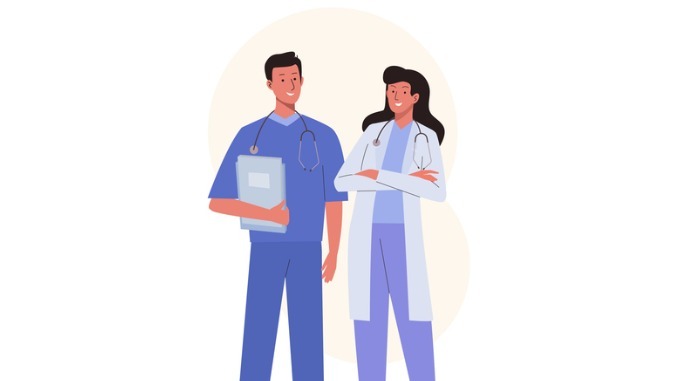As reported by GP Online, ahead of the general election, the BMA calls for a new GP contract, better practice premises, and an end to substituting doctors with physician associates
A BMA manifesto published ahead of the 4 July general election – entitled ‘Patients need doctors’ – delivers the stark warning that with no doctors, there will be no healthcare.
It warns the next government that health must be its ‘number one priority’ – and that valuing doctors must be at the heart of this. To stand a chance of improving the nation’s health, the BMA says, whoever wins the general election will need to focus on ‘looking after and retaining’ doctors.
The manifesto sets out a list of demands specific to general practice, calling for ‘new GP contracts for England, Northern Ireland and Wales that safeguard sustainable NHS GP partnerships’ and investment in GP premises. The call for a new contract comes just weeks after the BMA England GP committee set out demands for a new substantive GP contract.
BMA manifesto
It also demands an end to ‘red tape’ that prevents existing general practice funding being used to recruit GPs and practice nurses – and a reduction in locum GP unemployment.
GPonline has reported on warnings from the BMA that thousands of qualified GPs are currently struggling to find work because practices can’t afford to recruit them – and on calls for funding ringfenced for the £1.4bn-a-year additional roles reimbursement scheme (ARRS) to be made available for recruitment of GPs and practice nurses.
The BMA manifesto also warns the incoming government to ‘stop the substitution of doctors with medical associate professions (MAPs) – including physician associates and anaesthesia associates. It says: ‘Halt the recruitment of “associates” and give medical teams genuine “assistants”.
‘The use of MAPs, including physician associates, must not come at the expense of skilled and expert doctors. MAPs are not doctors and cannot take on the role of doctors. The patient safety risk this is causing must be addressed immediately.’
GP jobs crisis
The shortage of GP jobs has left thousands of registrars close to finishing their training fearing they will not find work in general practice. GPonline reported this week on a registrar – weeks from qualifying as a GP – who had decided to apply for work with Tesco because they had been unable to find a job in general practice to go to once their training is complete.
This case comes less than two months after this website reported on a qualified GP who had become an Uber driver because they could not find work in general practice – and other GPs forced to turn to foodbanks to support their families.
BMA chair Professor Philip Banfield said: ‘We have an understaffed, under-resourced and under-performing health service, an exhausted and underpaid workforce and an increasingly unwell population. The next government risks the collapse of free-at-the-point-of-need healthcare if it fails to address these issues and reverse the damage caused by years of austerity politics.’
He warned that tackling waiting lists, increasing NHS productivity and improving patient safety ‘all depend on positive engagement with the medical profession’.
Doctors’ pay cut
‘Having enough doctors, with their unique skills and expertise, is at the core of this. In recent years we have seen erosion of the profession: with real-terms pay cut after real-terms pay cut, our professional expertise disregarded, and when we exercise our moral and professional duty to raise safety concerns these are too often run roughshod over by managers or executives who would rather protect the reputation of institutions than protect patients.
‘If the next government continues down this path, refusing to value and protect the medical profession, doctors will continue to leave, and the situation for patients – waiting for years for operations, weeks to see a GP, or days to be treated in A&E – will get far, far worse.’
The BMA manifesto also calls for guarantees from the next government that the ‘punitive impact’ of the lifetime allowance and the annual allowance on pensions – which left many doctors facing huge tax penalties if they took on extra work – would not be allowed to return.
Five key commitments parties are asked to adopt are:
- Value the vital role doctors play across all health services and restore their pay,
- Protect doctors from any further erosion of their professional role and employment rights,
- Train and provide jobs for the next generation of doctors needed to meet demand,
- Fund the services needed for the future of the health service,
- Safeguard the public’s health and wellbeing, prioritising preventative care.



Be the first to comment